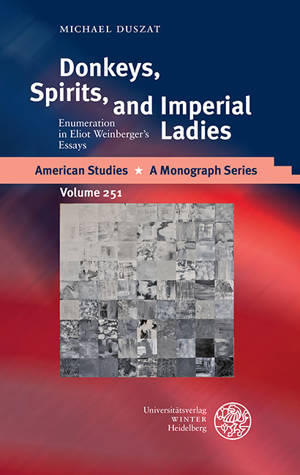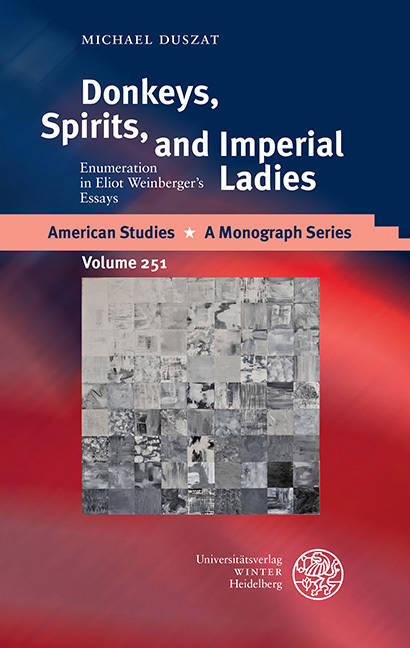
- Afhalen na 1 uur in een winkel met voorraad
- Gratis thuislevering in België vanaf € 30
- Ruim aanbod met 7 miljoen producten
- Afhalen na 1 uur in een winkel met voorraad
- Gratis thuislevering in België vanaf € 30
- Ruim aanbod met 7 miljoen producten
Zoeken
€ 41,45
+ 82 punten
Omschrijving
Eliot Weinberger's essays conspicuously rely on an unusual literary device: enumeration. In close readings of selected essays from Weinberger's work, the author explores the aesthetic effects and functions of this original stylistic strategy, asking how it challenges common ideas about the genre. What happens to the traditional speaking subject, the 'essayistic I', when all the reader gets is a catalogue of bare facts? What does it mean when an essay becomes a repetitive chant, an excessive litany, or a collection of curious words? What kind of knowledge do essays produce when they enumerate? In what sense can enumeration in the essay be thought of as a specific form of cultural critique? As a trigger of constant reflection about the form, the author argues, Weinberger's use of enumeration becomes a critical enquiry into the poetics of the essay, challenging and at the same time making visible the conventions of the genre.
Specificaties
Betrokkenen
- Auteur(s):
- Uitgeverij:
Inhoud
- Aantal bladzijden:
- 305
- Taal:
- Engels
- Reeks:
- Reeksnummer:
- nr. 251
Eigenschappen
- Productcode (EAN):
- 9783825363024
- Verschijningsdatum:
- 1/09/2014
- Uitvoering:
- Hardcover
- Formaat:
- Genaaid
- Afmetingen:
- 134 mm x 210 mm
- Gewicht:
- 449 g

Alleen bij Standaard Boekhandel
+ 82 punten op je klantenkaart van Standaard Boekhandel
Beoordelingen
We publiceren alleen reviews die voldoen aan de voorwaarden voor reviews. Bekijk onze voorwaarden voor reviews.











